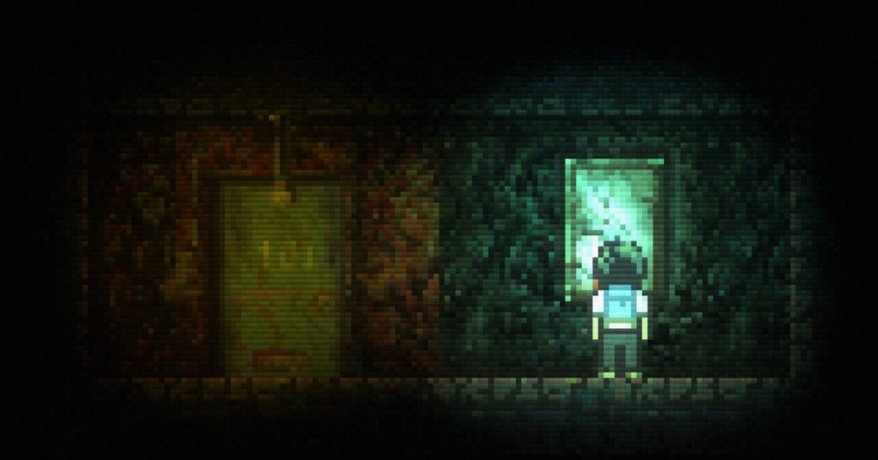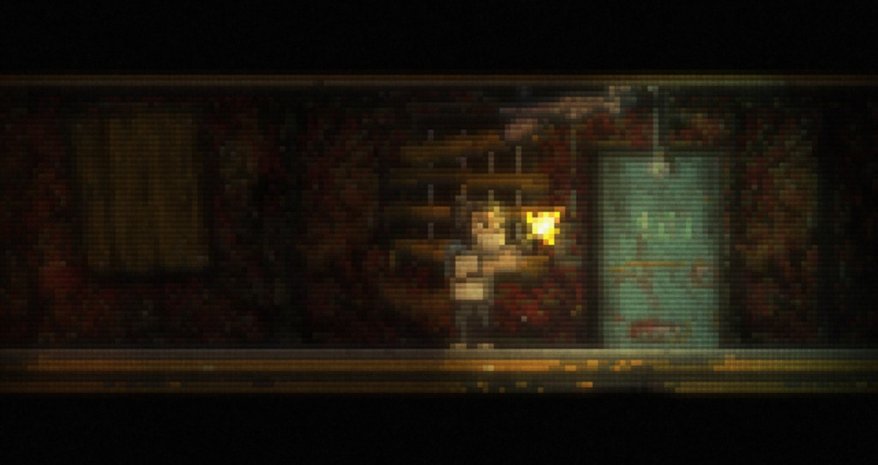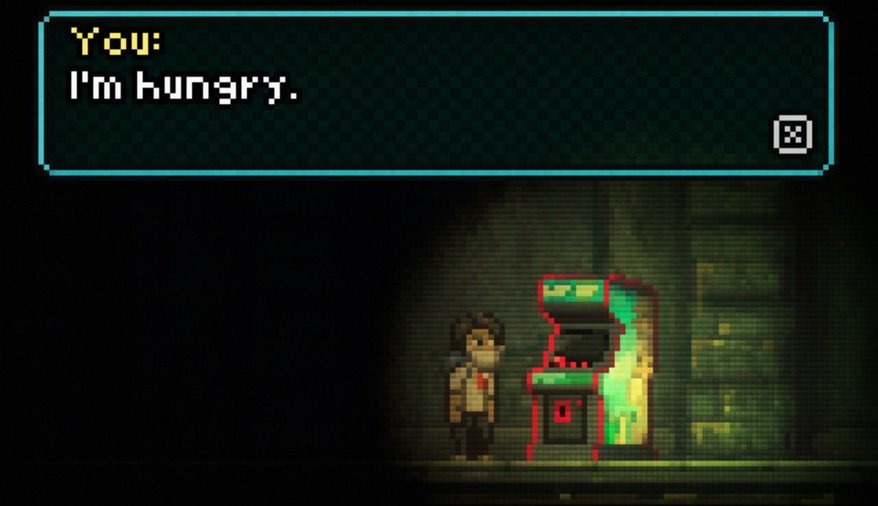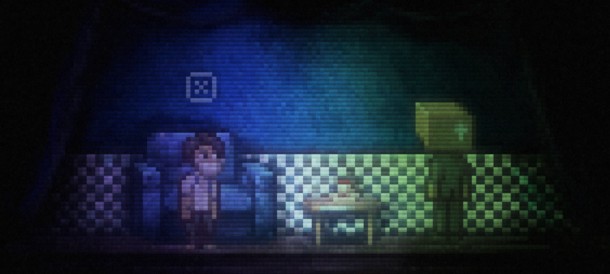Our Verdict
A smart, unembellished survival horror adventure which rewards patience and inspires introspection.
PC Gamer's got your back
If I'm the titular “lone survivor,” why do I keep meeting strangers? Why don't our conversations make sense? And why does it seem so important that I befriend a cat?
Ostensibly, Lone Survivor is a Silent Hill-inspired sidescroller with the standard survival horror trappings. You're in a city overrun by inside-out monsters, you collect and combine items to solve simple problems, and your best friends are a battery-sapping flashlight and a handgun with limited ammo. But it stands out, especially from recent Silent Hill games, with a clever psychological angle and a curious sense of style and wit.
The game is a chunky quilt of unstable pixels—it's as if you've got your nose up against a flickering cathode ray tube. Parsing the retro-nouveau look was straining at first (especially the giant pixel text), but I warmed up to it. The controls and mechanics are equally pared down, but grew on me a little less.

The awkwardness of projecting sidescrolling corridors onto an overhead map can cause spatial confusion, and, while lovely, the pixelated art occasionally disguises important doorways. These issues are mostly resolved by frequently checking the crude map, but monsters won't pause for you to plot your course. Teleportation mirrors often save the day by acting as checkpoints which limit accidental loss of progress.
All mirrors lead to a hub apartment from which you explore outward with cryptic directions from apparent hallucinations, collecting keys and tools, and avoiding near-sighted monsters by creeping along inset bits of wall. You can fight back, but you're no gunslinger: empty a clip and you'll auto-reload, forcing you to stand still, and possibly die. Get boxed in, and you'll struggle to switch between aiming left and right, and almost definitely die. Thankfully, dead monsters stay dead forever, but Lone Survivor is still a challenging five-to-eight hours.

Though necessary, the bare-bones combat is secondary to the game's more complex psychological themes. Early on you'll notice a heavy (and sometimes overbearing) focus on seemingly peripheral activities: what you eat, whether or not you take pills, how well you sleep, and how you interact with your hallucinations. Sleeping saves your progress, and taking pills triggers surreal dreams which can replenish supplies. Other than that, the decision to sleep well and cook warm meals is largely about whether or not you feel it's important.

I played most of my first run without even bothering to find a can opener, instead opting to pop pills and eat gross-tasting squid on a stick. Why bother cooking at the end of the world? I didn't realize it at first, but I was failing at the “try not to lose your mind” part.
You'll probably guess some of what's going on before you finish, but it's worth sticking around to see the game reveal its cleverness. Just don't rush. Lone Survivor stressed me out when I took it too fast, but when I relaxed, enjoyed the fantastic soundtrack, and played along with its themes, I was rewarded with something worth reflecting on, and a reason to play it again.
Lone Survivor is available DRM-free at http://www.lonesurvivor.co.uk/buy.html , and the original soundtrack is available to listen to and purchase on Bandcamp .
A smart, unembellished survival horror adventure which rewards patience and inspires introspection.

Tyler grew up in Silicon Valley during the '80s and '90s, playing games like Zork and Arkanoid on early PCs. He was later captivated by Myst, SimCity, Civilization, Command & Conquer, all the shooters they call "boomer shooters" now, and PS1 classic Bushido Blade (that's right: he had Bleem!). Tyler joined PC Gamer in 2011, and today he's focused on the site's news coverage. His hobbies include amateur boxing and adding to his 1,200-plus hours in Rocket League.


